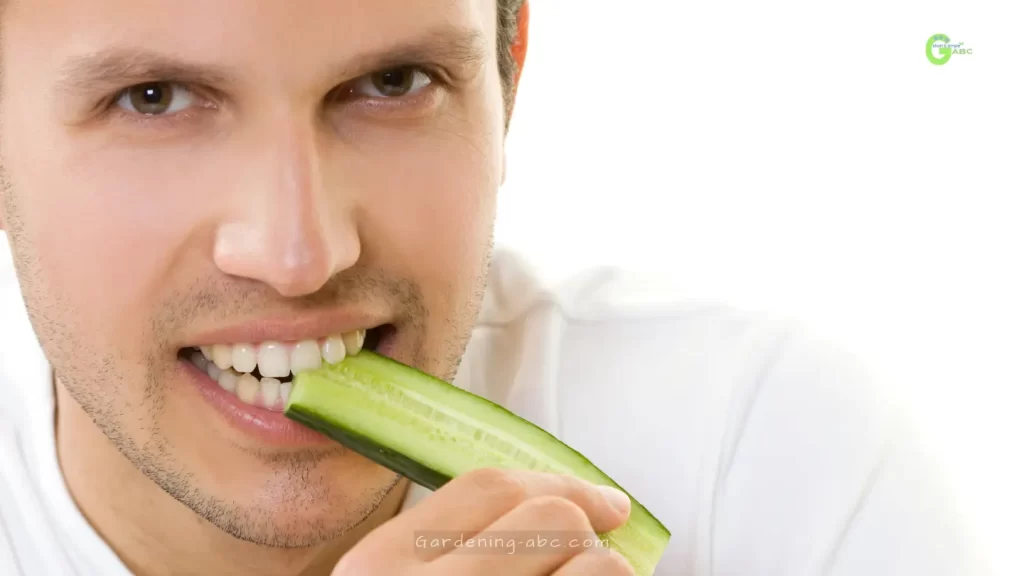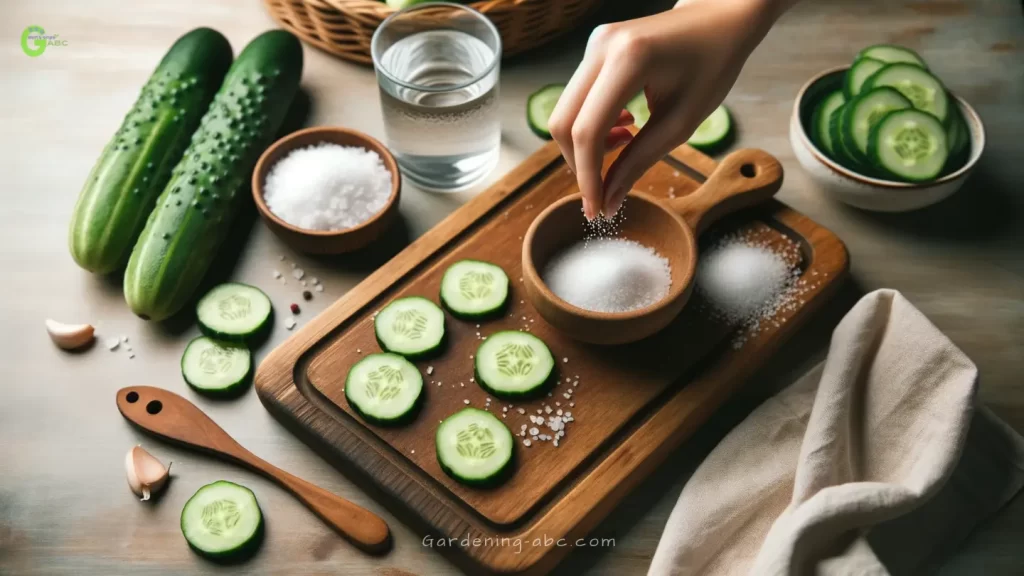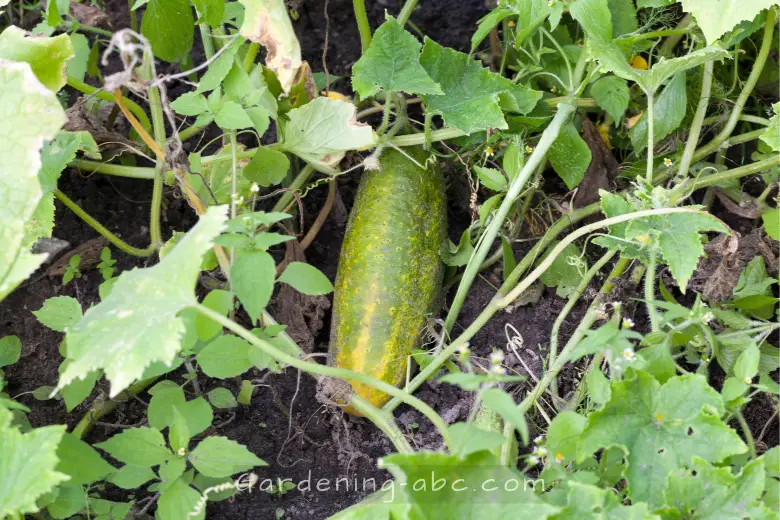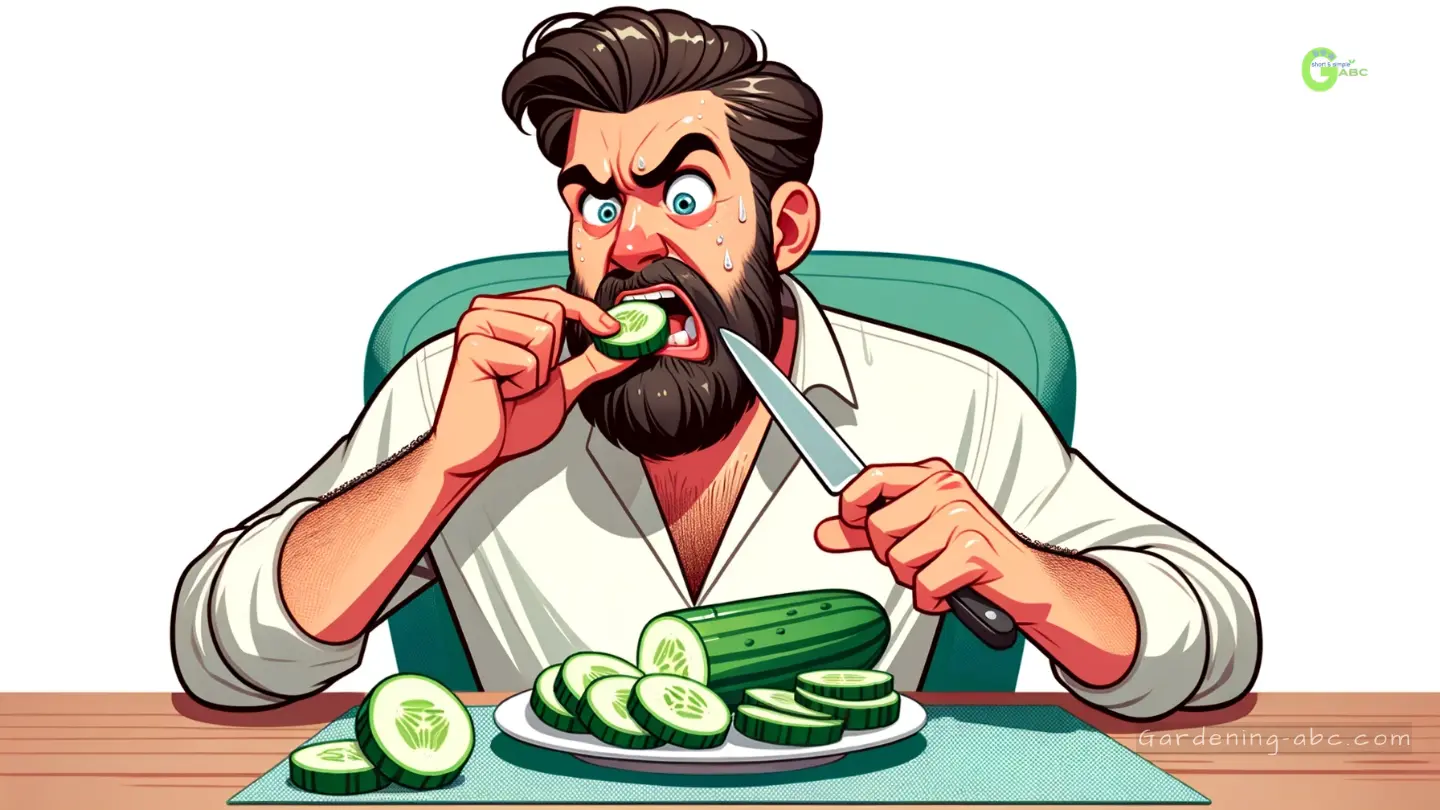We use affiliate links to run our site. When you buy through links on our site, we may earn an affiliate commission, without any added cost to you. Learn more
Have you ever taken a bite of a fresh, juicy cucumber only to be met with a bitter taste? It can be disappointing, to say the least.
But don’t give up on your cucumber dreams just yet! In this guide, we’ll delve into the reasons behind cucumber bitterness and provide you with practical solutions to prevent and remove it.
Whether you’re a seasoned gardener or a curious foodie, you’ll discover fascinating insights into the factors that affect cucumber flavor and how to grow the sweetest, most delicious cucumbers.
Get ready to unlock the secrets to cucumber bliss and savor the taste of summer like never before.
COOL TIP:
Beat the heat with a shade cloth shield! Keep them cool, and say goodbye to bitterness.
What Makes Cucumbers Bitter
Cucumber plants contain a compound cucurbitacin, which makes the cucumbers taste bitter. Cucurbitacin is mostly found in foliage as well as in fruits. It is nature’s way to deter animals and protect the fruit from getting eaten.
The more cucurbitacin, the more bitter the taste of the cucumber.
Are Bitter Cucumbers Safe to Eat?

Bitter cucumbers are mostly safe for most people. In some cases, a bitter-tasting cucumber can create mild digestive discomfort, known as a burp.
Some new cucumber cultivars do not contain this cucurbitacin, so they don’t taste bitter and don’t induce any burp. These are called burpless cucumbers.
Usually, burpless cucumbers produce fruits with thinner skins and fewer seeds. You can eat them without peeling.
How to Remove Bitterness From Cucumber:
Cut the ends off the bitterness usually gets concentrated at the ends. Peel the cucumber to remove the remaining bitterness. The thicker the peel the less bitter will be the remaining fruit.
You can also rub the cucumber ends in a circular motion after cutting with the cut piece. It will produce some foam. Then remove the ends and wash the cucumber. It will reduce the bitterness.
If nothing goes right and it is too bitter to eat compost it. You rarely will have to do this.
What To Do With Bitter Cucumbers:
Here are a few things you can do with bitter cucumbers:

Add Salt:
Salt inhibits our ability to taste bitterness. You can either directly salt the cucumber or use it in salty dishes.
Discard The Bitter Parts of The Fruit:
The bitterness usually is at the stem ends of the fruit and in the skin. So if you remove those parts, the rest of the fruit should be fine to eat.
Add Sugar:
Just like salt sugar can also inhibit the bitter taste receptors. You can make tzatziki sauce using these cucumbers and sugar. Pairing with sweet-tasting fruits like watermelon or strawberries can also reduce the bitter taste.
COOL TIP:
Don’t let your cucumbers go thirsty – water them regularly, especially in dry weather. A well-hydrated cucumber is a sweeter cucumber.
Why Do My Cucumbers Taste Bitter This Year?
The cucurbitacin, produced in the cucumber plants protects the plant from animals and pests. Usually, it is concentrated in the roots and leaves and rarely affects the fruit.
However, some hostile growing conditions can cause the cucurbitacin to spread in the fruit and result in bitter-tasting cucumbers.
This is why the same cucumber plant may produce perfectly fine sweet-tasting cucumbers one year and bitter-tasting ones in the next year.
There can be a few reasons why your cucumbers might be turning bitter.
COOL TIP:
Think small, taste big! Harvest young and savor the sweet.
Warm Weather:
More often than not, bitter cucumbers are the result of extreme heat. When there is a significant increase in temperature, it triggers their maturation process, and the lettuce starts bolting by sending out stalks and flowers. And the leaves will taste bitter.
Lack of Water:
Being a watery fruit, cucumbers need a lot of water to grow and maintain their sweet taste. Lack of water can cause a bitter taste in the fruit.
Lack of Nutrients:
Cucumbers eat a lot. So they also need their nutrients very quickly. A deficiency of nutrients can cause bitter-tasting cucumbers.
Affected by Diseases:
Diseases-infected fruit can also taste bitter. Check if this is the reason for your bitter-tasting cucumbers.
How to Prevent Bitterness in Cucumbers:
Prevention is always better than cure. Here are a few things you can do to prevent your cucumbers from going bitter:
- Make sure the plant is getting at least 6 hours of sunlight. Lack of sunlight can be a cause of bitterness in the fruits.
- During extreme heat conditions, use shade clothes to filter light to the plants, so they won’t get scorched by the extreme sun.
- Water well. Especially during a long period of dry weather. An inch per week is good for the cucumber plant.
- Use mulch to cover the soil. It will keep the soil moist and cooler.
- Keep the soil fertile. Cucumbers are voracious eaters, so there is always a possibility that the soil nutrients will deplete from time to time. Lack of nutrients can cause bitterness in the fruit. Use a good quality balanced fertilizer or compost to keep the soil enriched with nutrients.
- Grow cucumbers on raised beds. It will help young plants avoid stress. Too much stress can cause bitterness.
- Pick smaller fruit. They get bitter as they grow bigger.
- Choose burpless or non-bitter varieties of cucumbers for growing.

Once you find a bitter cucumber, take these steps so the rest of your harvest doesn’t suffer the same fate.
Conclusion:
if you’ve been frustrated by bitter cucumbers, we hope this guide has been helpful in identifying the causes and providing solutions. Whether adding salt, discarding bitter parts, or choosing the right variety, there are plenty of ways to enjoy sweet, delicious cucumbers all season long.
Now, take action and put these tips into practice. Plant your cucumbers in the right spot, water them regularly, and harvest them at the right time. With a little bit of care and attention, you’ll be able to enjoy a bountiful harvest of sweet, crisp cucumbers that will make your taste buds sing.
Share this guide with other gardeners so they can also benefit from these tips. And don’t forget to explore more articles on this site for all your gardening needs.
Resource:
Amazon and the Amazon logo are trademarks of Amazon.com, Inc, or its affiliates.

Hi there! My name is Prasenjit and I’m an avid gardener and someone who has grown a passion for growing plants. From my hands-on experience, I have learned what works and what doesn’t. Here I share everything I have learned.
